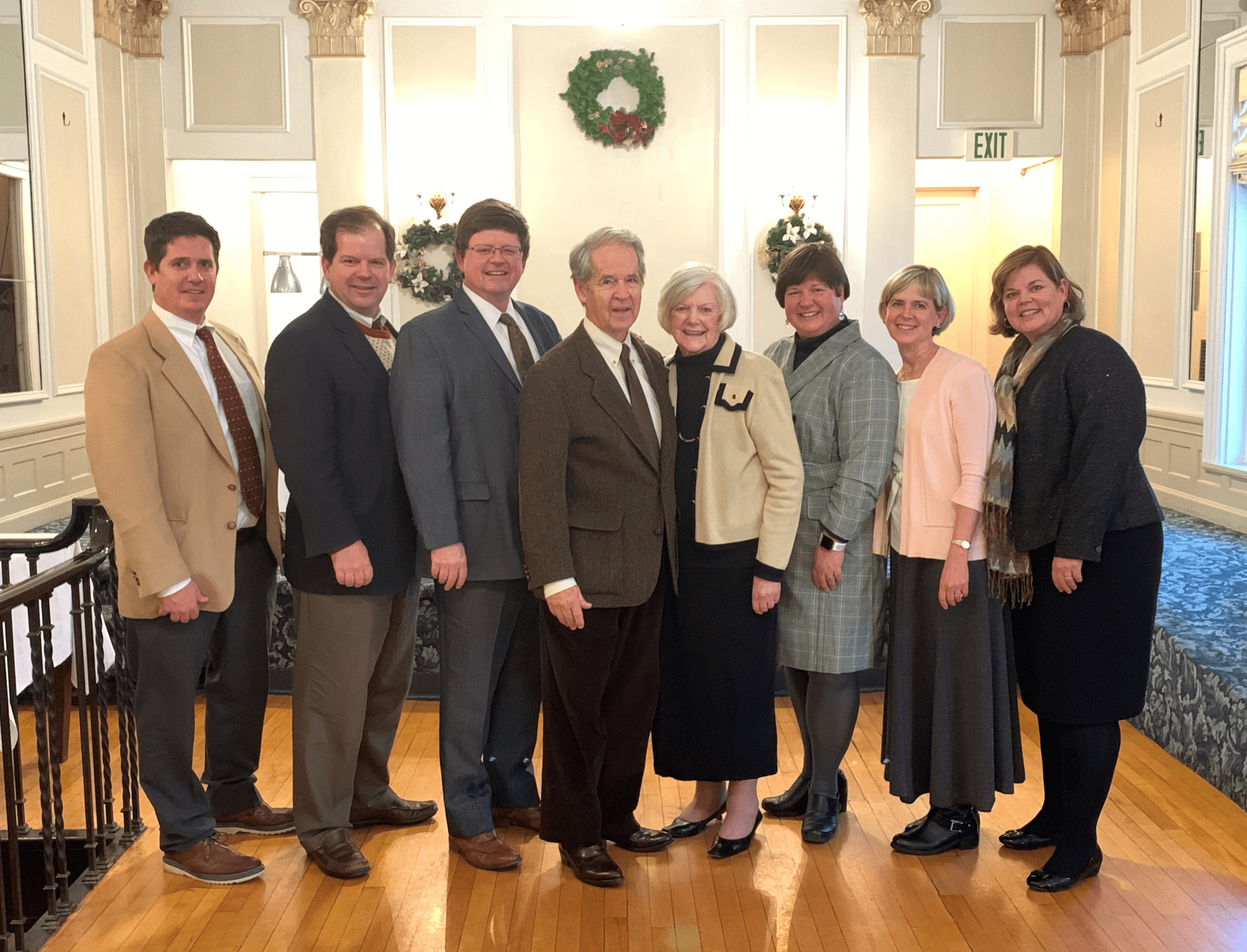
Christian Johnson, a distinguished alumnus of the University of Utah’s Honors College (formerly the Honors Program), is the Commonwealth Professor of Law and former Dean of Widener Law Commonwealth. Christian unequivocally considers the Honors Program to be transformative, terribly interesting, and the finest undergraduate education that could be offered. The liberal education that the Honors Program provided him was an important counterweight to the more quantitative orientation of his undergraduate accounting courses.
The University of Utah’s Honors Program, still in its early stages, fostered a close-knit community with small graduating classes of around five students per year, a number of which included Christian’s siblings. All six kids in Christian’s family attended the University of Utah and actively participated in the Honors College: Christian Johnson, Emily Ann Johnson (Ott), Martha Ann Johnson (Jackson), Eden Ann Johnson (Ellingson), Joshua Johnson, and Samuel Johnson. All of them were encouraged to participate in the Honors Program by his parents, Franklin and Kathleen Johnson, who were both Utah graduates. Christian and his siblings have all enjoyed professional success attributable in large part to the outstanding education that they received through the Honors Program.
The Honors Program opened up new ideas and vistas to Christian. He fondly remembers reading Locke in ITW taught by the legendary Dr. Ken Eble. Dr. James Clayton opened up legal and social policy issues in the Secularization of American Society. In his calculus classes, he visited Park City mine shafts, the Dugway Proving Grounds, the University’s nuclear reactor, and other adventurous places as the University’s best professors explained how calculus is applied in science. Christian formed a life-long friendship with his mentor, Judge (and Professor) Ralph Mabey, as he worked on his Honors Thesis about U.S. Bankruptcy Reforms. Christian spent hours under Mabey’s watchful eye as he reviewed and wrote about bankruptcy cases that were being affected by recent bankruptcy law changes.
The writing and research that Christian did in the Honors Program paid huge dividends in his career. After graduating with an Honors BA in Accounting (where he had the top GPA in the accounting program), Christian earned a Masters Degree in Accounting from Utah. He earned his law degree from Columbia University, where he was Executive Editor of the Columbia Law Review and was a Stone Scholar. These writing and research skills honed in Honors Program courses allowed Christian to meet the demands of writing and editing papers for classes and for the Law Review.
Christian believes that the Honors College laid the groundwork for his success, providing him with a strong foundation for his legal and academic career. After graduating from Utah, he was a tax accountant for two years for Price Waterhouse. As a lawyer, Christian worked for several large law firms in New York and Chicago. After five years, he began his career in academy as a law professor at Loyola Chicago. Six of his most interesting years as a law professor were at the University of Utah S.J. Quinney College of Law. There he was the Hugh B. Brown Presidential Endowed Chair in Law and the Associate Dean for Academic Affairs. While he was a professor at Utah, Christian and his family lived one house away from the Honors College on the Fort Douglas parade ground.
After leaving Utah, he served as Dean for five years at Widener Law Commonwealth. Currently Christian is the Commonwealth Professor of Law and Business Advising where he is the Director of the Business Advising Program. Christian continues to publish and speak about capital markets issues. He is currently also a consultant for the U.S. Commodity Futures Trading Commission (and a former consultant to the Federal Reserve Bank of Chicago). He is also a Board Member of the U.S. Army Heritage Foundation.
During his career as an academic, Christian has travelled extensively, teaching about syndicated lending, derivatives, repos, and securities lending in North and South America, Europe, the Middle East, Asia, Africa and Australia. He has authored and co-authored six books on capital markets, two dozen law review articles, and over three dozen other publications. He has also given over 100 lectures, presentations and workshops throughout the globe.
Reflecting on his Honors College experience, Christian offers two pieces of advice for current students. First, he emphasizes the importance of taking advantage of all of the opportunities that the Honors College offers to undergrads at the University. He believes that it would be difficult to find a finer learning environment anywhere else in the country. The Honors College education will do more to change your perspective and understanding of society and the world than any other experience at Utah. Second, he strongly believes in the value of learning how to write and research effectively, efficiently, and concisely, all skills taught in Honors College courses. Effective communication, he believes, is a valuable asset in all aspects of life.
